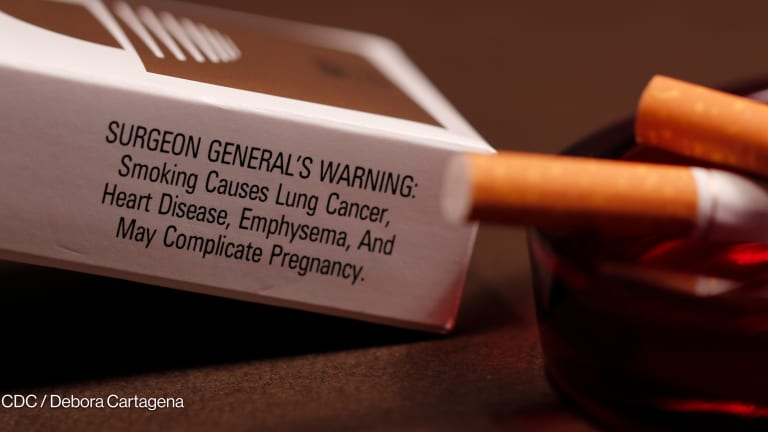
We live in a world filled with products that are harmful to our health — tobacco, alcohol, junk food and sugary drinks, as well as fossil fuels. All these commodities have been associated with the major risk factors for noncommunicable diseases, or NCDs, such as heart disease and stroke, cancer, diabetes, chronic respiratory disease, and mental health and neurological conditions.
NCDs remain the leading cause of death and disability globally, despite most of them being preventable by reducing exposure to risk factors — for instance up to 90% in the case of type 2 diabetes, and 80% of heart disease. Addressing the NCD burden is a surmountable challenge but requires action and investment. A coherent package of fiscal policies, primarily health taxes, removal of health-harming subsidies, and granting of health-promoting subsidies, can be a first step.
In addition to generating public revenue, such policies also protect population health by reducing exposure to NCD risk factors and making healthier options more accessible, while saving health care costs and minimizing lost productivity due to disability and death.
Despite these multiple benefits, fiscal policies are underused in most countries around the world. Health-harming products tend to be affordably priced, often helped by government subsidies. NCD Alliance’s recently published report Getting Fiscal Policies Right recognizes this as a market failure, in which we — consumers — don’t pay the true cost at the cash register.
We — and governments — pay it years later with our health, increased health care costs and productivity loss. Fiscal policies — when used to promote health — thus correct market failures and allow consumers to make choices based on products’ true cost.
An effective fiscal policy
Health taxes, or excise taxes applied on unhealthy products, are widely considered the most effective fiscal policy, discouraging consumption through tax-induced price hikes and saving lives as a result. For instance, research has evidenced that when alcohol taxes double, alcohol-related deaths decrease by 35%.
And as the recently published report by Bloomberg Philanthropies shows, a 50% increase in excise taxes on tobacco, alcohol, and sugary drinks across all countries would result in an additional $3.7 trillion in revenue over a five-year period. If this revenue was directed toward health, it could boost the government health budget by 12% worldwide, and 40% in low- and middle-income countries. Moreover, it’s demonstrated that there is general public support for raising health taxes.
Along with health taxes, the removal of harmful subsidies has catalytic potential for improving health and generating revenue for development. Such subsidies, both direct — such as cash transfers — and indirect — like tax exemptions and incentives — create opportunities for health-harming industries to gain large profits and make their unhealthy products more affordable. With the additional resources from these subsidies, industry players can counteract the effects of health taxes and further shape regulations to their advantage.
Agricultural subsidies are of particular concern, especially for tobacco and sugarcane farming, as they distort markets by making unhealthy crops economically viable. Between 2017 and 2022, the EU allocated an estimated $109-$295 million to tobacco farming through its Common Agricultural Policy, despite its commitment to phasing out such support. Governments should focus on measures to eliminate subsidies for tobacco, sugarcane, and other crops used in unhealthy products while helping farmers transition to cultivating health-promoting crops or exploring alternative income-generating activities.
Redirecting these subsidies toward policies that promote health and equity — such as supporting nutritious food when currently an estimated 3 billion people cannot afford a healthy diet, or improving access to clean energy sources, green spaces, or physical activity opportunities — can provide significant and far-reaching benefits. Also, taxing unhealthy food products can be paired with subsidies for healthier foods, such as fruits, vegetables, and whole grains, to maximize revenue generation and address equity considerations.
The twin threat of fossil fuels
Fossil fuel subsidies also play a major role in exacerbating public health and environmental issues. These subsidies distort pricing, encourage pollution, and delay the transition to cleaner energy sources. The health impact is severe, as air pollution causes over 8 million deaths annually, and the climate crisis is projected to cause 250,000 additional deaths per year between 2030 and 2050.
According to the International Monetary Fund, in 2022, direct and indirect subsidies toward fossil fuels amounted to $7 trillion worldwide, more than the global education budget. Eliminating these subsidies would reduce the key driver of climate crisis, while also preventing the 5.13 million annual deaths that have been associated with ambient air pollution from fossil fuel use only.
Additionally, it would generate public revenue equal to 3.6% of the global gross domestic product — more than enough to enable low- and middle-income countries to meet the Sustainable Development Goals, including providing universal health coverage and ensuring health care accessibility for all.
A ‘major barrier’
There is no question that fiscal policies can dramatically improve population health, equity, and economic prosperity. Despite widespread support, there is a major barrier that stands in the way of governments implementing strong models. Industry interference across NCD risk factors is rife and sophisticated. The tobacco industry set a precedent for these decades ago — but since then some precedents for population health have been established as well.
In November 2023, Colombia implemented the most comprehensive tax on ultra-processed foods globally, despite being challenged legally by industry players. Colombia’s Constitutional Court issued a landmark ruling affirming that the principles of economic freedom and free competition have limits, which are defined by the need to uphold citizens’ fundamental rights and safeguard their overall well-being. This decision sets an important precedent for similar efforts in other countries and underlines that our governments have a legal obligation to protect our health.
One of the most effective ways to do this is to prevent NCDs, for which a coherent system-wide approach is essential, including strong fiscal policies. In 2025, heads of states and government will gather for the fourth U.N. High-Level Meeting on the Prevention and Control of NCDs, bringing the opportunity to deliver this message loud and clear to them: Health, equity, and sustainable development are all within our reach — but we need to get fiscal policies for NCD prevention right.
Visit Accelerating Action — a series highlighting pathways for funding NCD prevention and control, spotlighting innovative financing models and cross-sector collaborations.
This content is sponsored by NCD Alliance as part of our Accelerating Action series. To learn more about this series, click here.










